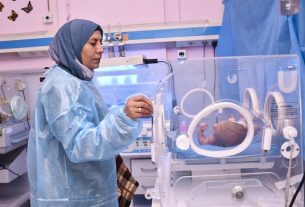The horrendous Hamas terrorism against Israeli civilians on October 7 and the experiences of combat soldiers in the Gaza Strip since then are causing serious post-traumatic syndrome disorder (PTSD) among many who need expert treatment to help them recover.
To cope with this, Tel Aviv University (TAU) has established a national PTSD clinic for treating civilians and soldiers, that will be one of the country’s largest public mental health facilities. It will be operated by its National Center for Traumatic Stress and Resilience.
The staff will include Israel’s leading PTSD experts and therapists, who collectively have hundreds of years of experience. They will both treat patients and conduct research.
Patients who are not covered by the Defense Ministry or the National Insurance Institute can get therapy for only a nominal fee.
Center director Prof. Yair Bar-Haim said that “cautious estimates speak of 30,000 new PTSD cases and related pathologies resulting from the war. We have harnessed the university’s academic and therapeutic resources to provide an immediate response to as many sufferers as possible.”
A permanent home for the clinic will be located in the Miriam and Moshe Shuster Building for the Center for Traumatic Stress and Resilience. It will include a treatment clinic, cutting-edge laboratories, and the Sam and Agi Moss Wing, scheduled to open it in 2025.
Because of the war, TAU decided to open the clinic immediately in temporary premises. The generosity of many donors in Israel and worldwide, with special thanks to Peter and Elaine Smaller, has enabled the clinic’s establishment.
The goal is to provide an immediate therapeutic response to as many patients as possible to bolster Israel’s depleted mental health system that, even before the war, was unable to meet the population’s real needs.
Providing PTSD treatments
At the first stage, it will provide treatments with proven efficacy for adults. Reserve soldiers referred by the Defense Ministry’s rehabilitation department will also be treated. Later on, as the program for adults is consolidated, additional programs for children, teens, and families will be offered as well.
The clinic will be led by Dr. Ofir Levi, formerly commander of the IDF’s Unit for PTSD, who is now teaching at TAU’s Bob Shapell School of Social Work. The National Center for Traumatic Stress and Resilience is headed by Prof. Yair Bar Haim of TAU’s School of Psychological Sciences.
TAU President Prof. Ariel Porat said, “Until October 6, we planned to open the clinic about two years from now, but the events of October 7 persuaded us it must be launched as soon as possible.
“Unfortunately, PTSD has become a nationwide affliction in Israel, and we as a university are aware of the needs of Israeli society, especially now, at one of the most difficult times we have known as a country and as a people.
“We intend to bring relief and new hope to thousands of soldiers and civilians emotionally impacted by the massacre and the war. I am certain that the clinic will expand its activities in the coming years and make an important contribution to the State of Israel.”
Bar-Haim added that, “Right after October 7, when information about the extent of the trauma began to accumulate, we realized there would be large numbers of PTSD sufferers who require long-term professional treatment. Israel’s best PTSD therapists responded to our call and joined the permanent staff of the clinic, which is expected to be the leading facility of its kind in Israel.”
Clinic director Dr. Ofir Levi said: “I served in the IDF for 25 years, including almost a decade as commander of the PTSD Unit during and after the Second Lebanon War and the ensuing operations Cast Lead, Pillar of Defense, and Protective Edge. Based on my experience, I know that a great professional challenge awaits us at the new facility.
“Our mission is founded upon our will and ability to provide the best and most effective care to those who seek our help. Together with senior clinicians from our Schools of Psychological Sciences and Social Work, we have formulated a treatment policy adapted to the various stages of trauma, so we can treat different populations.”


